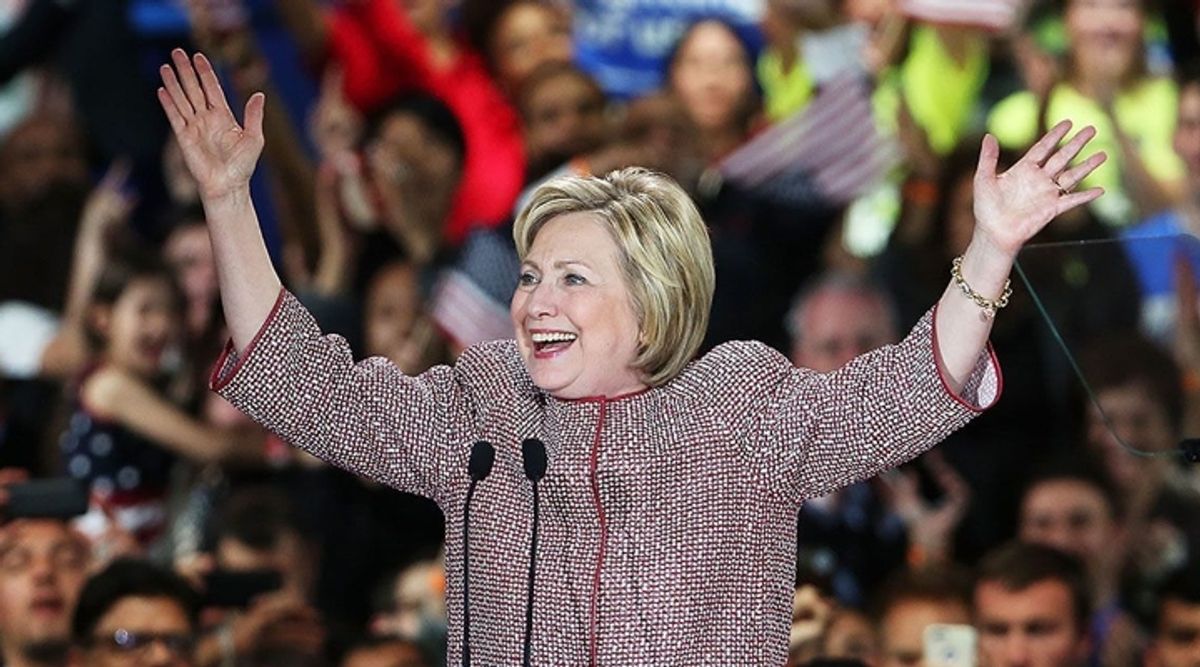Among the various accusations exchanged by the two candidates during the first presidential debate between Democrat Hillary Clinton and Republican Donald Trump on 26 September 2016 was Trump's assertion that Clinton lauded the multi-nation trade agreement known as the Trans-Pacific Partnership (TPP) as the "gold standard" of such deals:
TRUMP: Your husband signed NAFTA, which was one of the worst things that ever happened to the manufacturing industry.
CLINTON: Well, that's your opinion. That is your opinion.
TRUMP: You go to New England, you go to Ohio, Pennsylvania, you go anywhere you want, Secretary Clinton, and you will see devastation where manufacture is down 30, 40, sometimes 50 percent. NAFTA is the worst trade deal maybe ever signed anywhere, but certainly ever signed in this country.
And now you want to approve Trans-Pacific Partnership. You were totally in favor of it. Then you heard what I was saying, how bad it is, and you said, I can't win that debate. But you know that if you did win, you would approve that, and that will be almost as bad as NAFTA. Nothing will ever top NAFTA.
CLINTON: Well, that is just not accurate. I was against it once it was finally negotiated and the terms were laid out. I wrote about that in...
TRUMP: You called it the gold standard. You called it the gold standard of trade deals. You said it's the finest deal you've ever seen.
CLINTON: No.
TRUMP: And then you heard what I said about it, and all of a sudden you were against it.
CLINTON: Well, Donald, I know you live in your own reality, but that is not the facts. The facts are -- I did say I hoped it would be a good deal, but when it was negotiated...
TRUMP: Not.
CLINTON: ... which I was not responsible for, I concluded it wasn't. I wrote about that in my book...
What is the TTP? Sometimes described as a "much bigger version of NAFTA" (certain provisions are meant to be improvements on those of NAFTA and would supplant parts of it once TPP takes effect), the agreement covers 12 Asian-Pacific nations, including the U.S., Canada, and Mexico (but not China), drops tariffs, raises environmental protection and human rights standards, and is supported by the Obama administration. It has not yet been ratified by the United States.
As secretary of state, Hillary Clinton spoke favorably of the agreement-in-progress on several occasions. For example:
We want to realize the benefits from greater economic integration. In order to do that, we have to be willing to play. To this end, we are working to ratify a free trade agreement with South Korea, we’re pursuing a regional agreement with the nations of the Trans-Pacific Partnership, and we know that that will help create new jobs and opportunities here at home. (8 September 2010)
The United States is also making important progress on the Trans-Pacific Partnership, which will bring together nine APEC economies in a cutting-edge, next generation trade deal, one that aims to eliminate all trade tariffs by 2015 while improving supply change, saving energy, enhancing business practices both through information technology and green technologies. (9 March 2011)
This TPP sets the gold standard in trade agreements to open free, transparent, fair trade, the kind of environment that has the rule of law and a level playing field. And when negotiated, this agreement will cover 40 percent of the world's total trade and build in strong protections for workers and the environment. (5 November 2012)
After leaving the State Department in 2013, however, Clinton's remarks about the TPP became more guarded. "Because TPP negotiations are still ongoing," she wrote in her 2014 book, Hard Choices, "it makes sense to reserve judgment until we can evaluate the final proposed agreement." By the time of her October 2015 debate with Democratic rival Bernie Sanders, Clinton was foursquare against it:
I did say, when I was secretary of state, three years ago, that I hoped it would be the gold standard. It was just finally negotiated last week, and in looking at it, it didn't meet my standards. My standards for more new, good jobs for Americans, for raising wages for Americans. And I want to make sure that I can look into the eyes of any middle-class American and say, "This will help raise your wages." And I concluded I could not.
Despite her current opposition to the agreement and her attempts during more than one presidential debate to recast her previous support of it as "hopeful," the record shows that Clinton spoke glowingly of the TPP on more than one occasion, not least when she praised it in 2012 as setting "the gold standard in trade agreements."

